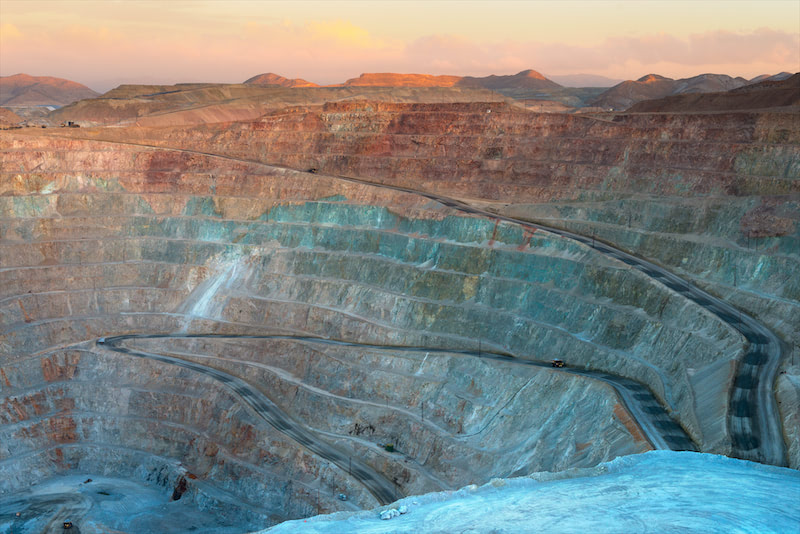SMM News: reply to recommendation No. 2906 of the third session of the 13th National people's Congress
Up to now, the production capacity of "strip steel" has been basically cleared, the illegal production and sale of "strip steel" has been effectively curbed, and the phenomenon of "Bad money drives out good" has been fundamentally changed.
Since 2016, under the strong leadership of the CPC Central Committee and the State Council, all parties have made joint efforts to promote the reduction of steel production capacity and achieved remarkable results. Two years ahead of schedule, the national target of eliminating the upper limit of 150 million tons of excess steel production capacity during the 13th five-year Plan was overfulfilled, and the production capacity of 140 million tons of "strip steel" was completely banned, effectively purifying the market environment and standardizing the market operation order. The efficiency of iron and steel enterprises has improved significantly, the utilization rate of capacity has returned to a reasonable range, and the debt of enterprises has dropped somewhat.
In order to support the legal, compliance and rational use of medium frequency furnace production in some special industries and special enterprises, and to avoid "accidental injury" caused by banning "strip steel". In February, 2017, the Development and Reform Commission and the Ministry of Industry and Information Technology commissioned and guided five industry associations, including China Iron and Steel Association, China Metal Association, China Foundry Association, China Special Steel Enterprises Association and stainless Steel Branch of China Special Steel Enterprises Association, to study and formulate opinions on supporting the crackdown on "strip steel" and defining the scope of use of industrial frequency and medium frequency induction furnaces (Steel Association (2017) 23). The "strip steel" that should be banned and the scope of enterprises that can retain the use of medium frequency furnaces are clearly defined. Among them, it is clear that in the production of special alloy materials, the metal materials are melted by induction heating in medium (industrial) frequency furnace, and then smelted in the refining process, which is used to produce special alloy materials such as precision alloy, amorphous alloy and so on. In special steel enterprises equipped with electroslag furnaces or self-consumable furnaces, steel cast or forged into billets (ingots) produced by medium (industrial) frequency furnaces are used as electrodes, and then remelted and refined by electroslag remelting or vacuum self-consumption process. it is used to produce special quality steel and special alloy materials such as superalloy, precision alloy, corrosion resistant alloy and so on. And the medium (industrial) frequency furnaces used in scientific research institutes and iron and steel enterprises with the qualification of national, provincial and ministerial-level enterprise technology centers are not included in the shutdown and demolition.
The Development and Reform Commission and the Ministry of Industry and Information Technology, together with the member units of the inter-ministerial joint meeting, will continue to consolidate and eliminate the achievements of overcapacity in iron and steel, and severely crack down on the illegal production and sale of "strip steel". For those who use medium-frequency furnaces but do not belong to the production capacity of "strip steel" or other backward production processes, support enterprises to produce in accordance with the law.
Reply to proposal No. 2996 of the third session of the 13th National Committee of the Chinese people's political Consultative Conference (No. 313 of Gongjiao Post and Telecommunications)
I. on the issue of increasing the proportion of capacity replacement
Since November 2019, in the light of the new requirements and the new situation, our Ministry has launched the formulation and revision of the measures for the implementation of capacity replacement in the Iron and Steel Industry. So far, the solicitation of social opinions has been completed and is expected to be officially launched by the end of this year.
Under the background of the current reduction development of the iron and steel industry, the setting of the capacity replacement ratio must ensure that the production capacity can be effectively controlled after the implementation of the project, and there must be no unreasonable phenomena such as nominal capacity reduction, actual production increase and so on. In order to effectively curb overcapacity, we plan to increase the proportion of replacement in environmentally sensitive areas from not less than 1.25 to 1.5, and specifically to 1.25 in non-environmentally sensitive areas, so as to further increase efforts to reduce production capacity through capacity replacement. At the same time, precise policies should be implemented to implement a differential capacity replacement ratio policy for substantive mergers and restructuring, electric furnace short-process steelmaking and non-blast furnace ironmaking, so as to promote industry transformation, upgrading and structural adjustment.
II. On the authority to examine and approve the replacement of iron and steel production capacity
According to the national reform idea of "release management and service", the construction of iron and steel projects has been changed from national approval to local record. At present, when an enterprise builds an iron and steel smelting project, it must submit the capacity replacement plan to the competent department of industry and information technology at the provincial level where the construction project is located, which shall be responsible for verifying the authenticity and compliance of the capacity replacement plan, announce it to the public on its portal, and accept social supervision.
In terms of steel project filing, the filing levels vary from place to place. In order to standardize the filing of iron and steel smelting projects, the Development and Reform Commission intends to conscientiously study and absorb the relevant opinions and suggestions put forward in the proposal when formulating guidelines for the filing of iron and steel projects.
III. On the issue of "withdrawing from the city and entering the garden" of iron and steel production capacity
With the continuous strengthening of environmental protection constraints, some areas regard the relocation of "urban steel mills" as the first choice to alleviate the pressure of urban environmental protection. Under the current situation that the foundation of eliminating excess capacity is not solid, tens of billions of relocation investment will significantly increase the asset-liability ratio of enterprises, once the market situation changes, it is very easy to become a "zombie enterprise", and there are few successful relocation cases at present. In addition, the newly built large iron and steel enterprises after relocation will be accompanied by the "big input and output" of materials, and the problem of unorganized emissions should not be underestimated, and it is difficult to fundamentally solve the problem of environmental protection by close relocation in the region.
Our department actively guides enterprises to practice the concept of green development and encourages "urban steel mills" to give priority to local transformation so as to achieve "integration of production and city". For the urban steel mills that do not meet the requirements of urban development, difficult to transform and weak competitiveness, they should be based on on-the-spot reduction and withdrawal. For the urban steel mills that really need to be relocated, they should be carefully planned and systematically promoted to avoid the chaos of "across-the-board" relocation. In the next step, our Ministry, together with the Development and Reform Commission and other departments, will strengthen the top-level design and further promote the structural adjustment and layout optimization of the iron and steel industry in combination with the documents being studied and formulated, such as the guidance for the high-quality development of the iron and steel industry and the guidance for the filing of iron and steel projects.



